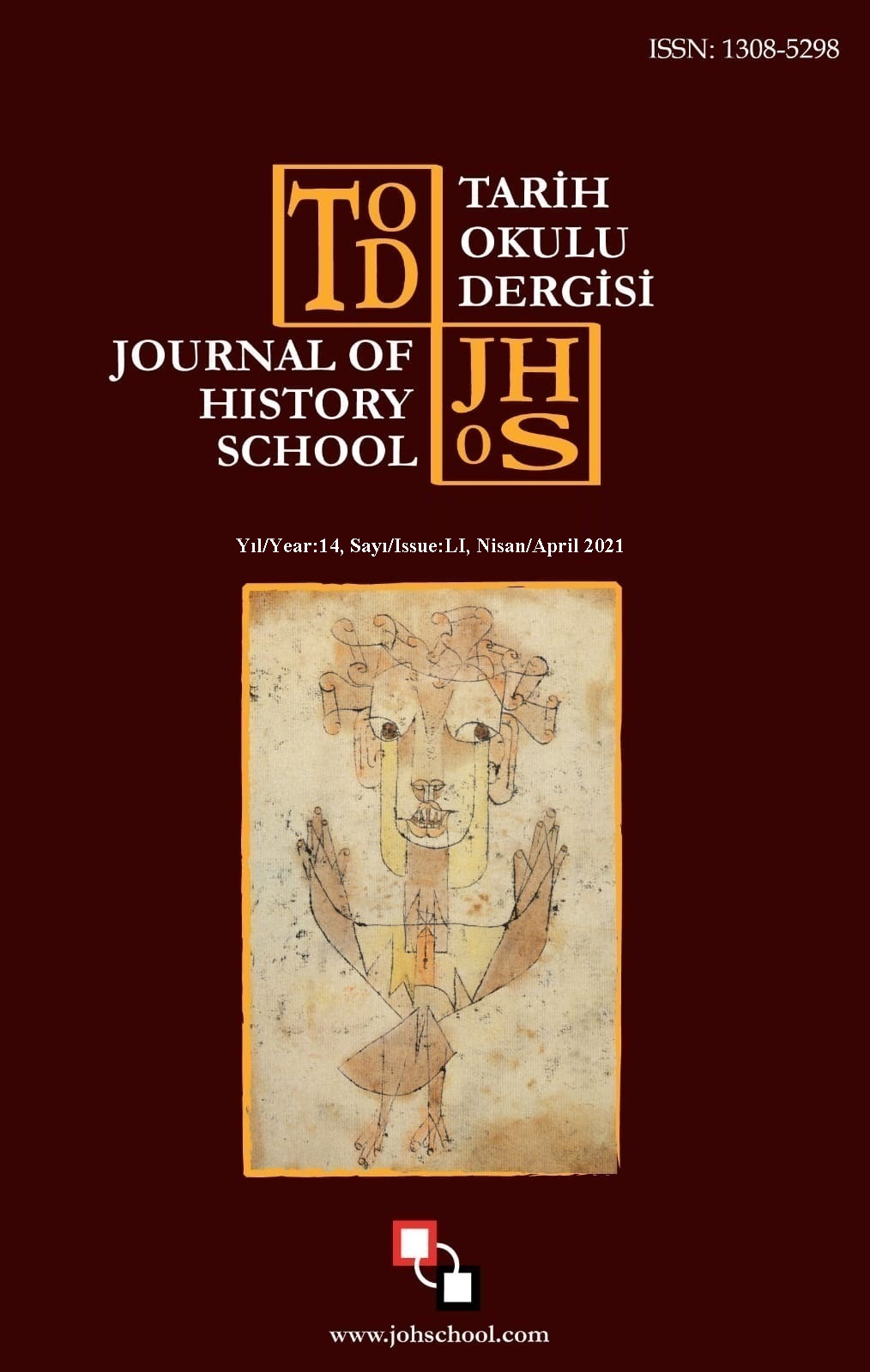Author :
Abstract
Bu araştırmada coğrafya öğretmen adaylarının mekânsal kavramlara ilişkin bilişsel yapılarını ortaya koymak amaçlanmıştır. Tarama modeline göre desenlenen çalışmanın araştırma grubunu Pamukkale Üniversitesinde öğrenim gören 45 coğrafya öğretmen adayı oluşturmuştur. Araştırmada veri toplama aracı olarak Kelime İlişkilendirme Testi (KİT) kullanılmıştır. Testte, ilgili literatür dikkate alınarak alt ve üst düzey 12 mekansal kavrama yer verilmiştir. Testin uygulaması online olarak gerçekleştirilmiştir. Uygulama öncesinde katılımcılara araştırmanın amacına ilişkin bilgi verilerek, testte yer alan anahtar kavramlara yönelik akıllarına gelen ilk beş cevap kelimesini ve anahtar kavramla ilgili cümleyi yazmaları istenilmiştir. Elde edilen cevap kelimeleri ve kelimeler arasındaki ilişkiler Bahar, vd., (1999) kesme tekniği; cevap cümleleri Ercan vd. (2010) tarafından geliştirilen rubriğe göre analiz edilmiştir. Araştırmanın sonucunda coğrafya öğretmen adaylarının mekânsal kavramlara ilişkin bilişsel yapılarının yeterli düzeyde gelişmemiş olduğu saptanmıştır. Öğretmen adaylarının bilişsel yapılarında, alt düzey mekânsal kavramlar ve bu kavramlar arasındaki ilişkiler temel düzeyde; üst düzey mekânsal kavramlar ve bu kavramlar arasındaki ilişkiler zayıf düzeyde oluşmuştur. Öğretmen adaylarının, alt düzey mekânsal kavramlara yönelik cümleleri ağırlıklı olarak yüzeysel bilgi içerirken; üst düzey mekânsal kavramlara yönelik cümleleri daha çok kavram yanılgısı içermektedir. Bu sonuçlar dikkate alındığında coğrafya öğretmen adaylarının mekânsal kavramlara ilişkin bilişsel yapılarının geliştirilmesi ve kavram yanılgılarının giderilmesi için coğrafya lisans programlarında mekânsal terminolojinin bir ders olarak okutulması önerilmiştir.
Keywords
Abstract
This study aimed to explore preservice geography teachers’ cognitive structures about spatial concepts. To this end, the study used a survey design and sampled 45 preservice geography teachers studying at Pamukkale University. The data were collected using a word association test (WAT). 12 low-level and high-level key spatial concepts were included in the test in light of the relevant literature. The test was administered online. Before the administration of the test, the participants were informed about the purpose of the study and asked to write a sentence about each key concept in the test and the first five response words that come to their minds related to the key concepts. The response words associated with the key concepts and their relatedness were analysed using the cut-off point technique proposed by Bahar et al.(1999). The response sentences about the key concepts were analysed using the rubric developed by Ercan et al. (2010). The analysis results showed that preservice geography teachers’ cognitive structures related to spatial concepts were insufficiently developed. The low-level spatial concepts and their relatedness were formed at a basic level in preservice teachers’ cognitive structures. On the other hand, the high-level spatial concepts and their relatedness were formed at a weak level. The sentences that the preservice teachers produced about the low-level spatial concepts mainly contain superficial information, while their sentences about the high-level spatial concepts mostly contain misconceptions. Based on these results, it is recommended that spatial terminology should be taught as a course in undergraduate geography programs to improve preservice geography teachers’ cognitive structures related to spatial concepts and overcome their misconceptions.





